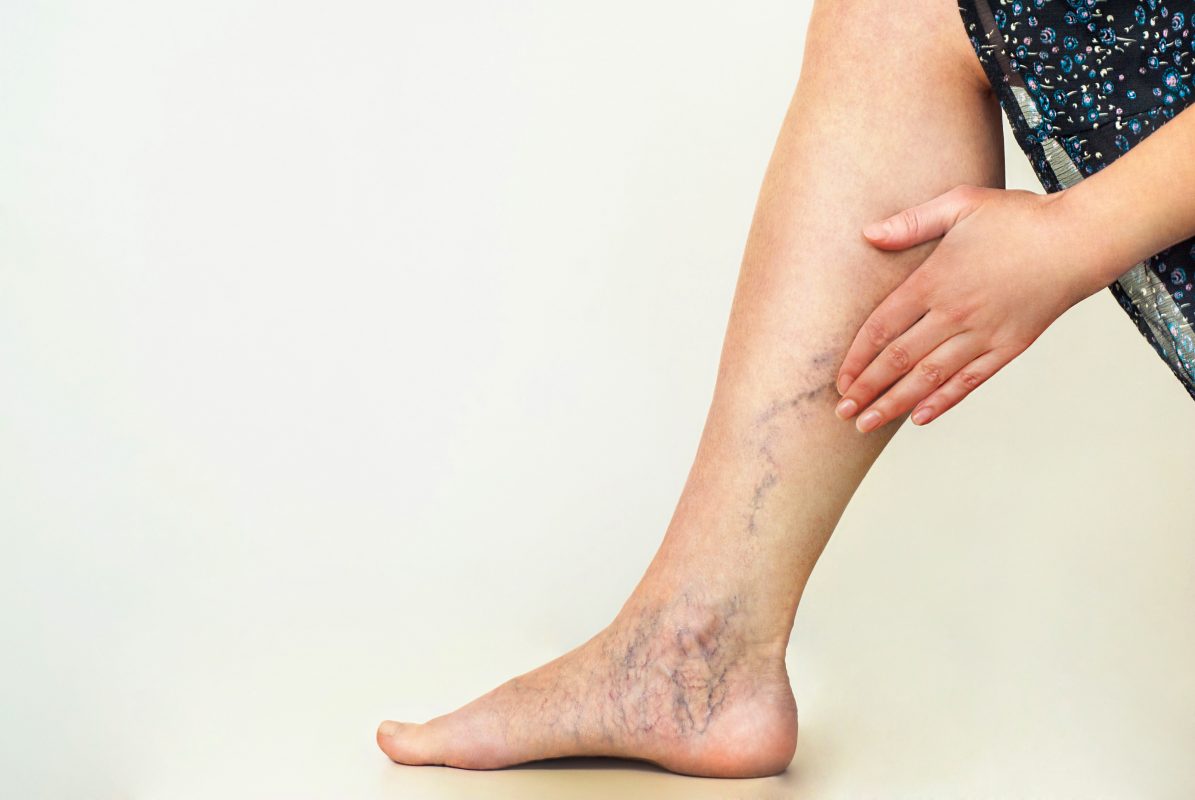A leading vascular surgeon explains why you need to get treatment for varicose veins, and what happens if you don’t
Getting any form of medical treatment can be a scary affair, and it would be perfectly natural for you to ignore those varicose veins. After all, they don’t seem to be causing you any problems, do they? Unfortunately, that is not quite right. Here are two main reasons why you need to definitely seek treatment for varicose veins.
Treatment for varicose veins can improve your quality of life
Estas venas várices may appear to be asymptomatic, but they are actually responsible for a lot of aches and pains that we tend to attribute to the normal ageing process. Do your feet ache and feel heavy at the end of the day? Do you get sudden leg cramps that make you want to twitch your leg? Do your ankles swell after you sit or stand for long periods of time? These are all classic symptoms of varicose veins. Generalized fatigue and tiredness can also be due to varicose veins. These symptoms can improve with simple measures like regular exercise, and keeping your legs elevated, but they never completely go away. Getting your veins fixed by a vein expertcan cause these symptoms to disappear altogether, and can substantially improve your quality of life.

Getting treatment for varicose veins helps you avoid dangerous complications
Varicose veins form under conditions of high pressure, which occurs when blood fails to return efficiently back to the heart, and pools in the legs instead. This excess, pooled blood tends to stagnate, and causes the vein to swell up. The vein wall and the skin over it stretch and become thinned out and fragile. This is a hazardous situation which can result in one of the following complications:
Bleeding: If you bump or graze the area of your body over the vein, the fragile tissues can get injured and cause the vein to rupture. This causes profuse bleeding that you will not be able to control by yourself; you will need emergency room treatment.
Venous ulcers: The pooled blood deprives the skin of its essential nutrients and the skin loses its self-healing capacity. As a result, even minor scratches to the skin can turn into troublesome, long standing venous ulcers.
Deep vein thrombosis: The stagnated blood has a tendency to clot. Blood clots can propagate to the deep veins of the leg, and can cause damage here. Sometimes, these blood clots even break off and travel to the heart and pulmonary artery, blocking off blood supply to the lungs. This condition, called pulmonary embolism, is extremely dangerous and can have fatal outcomes.
Treatment for varicose veins helps you avoid uncomfortable skin conditions
The sluggish blood in varicose veins can leak out of the vessels into the skin and subcutaneous tissues. The leaked blood can dry out into crusty deposits, which irritate the tissues, and can cause some pretty uncomfortable skin conditions. These include:
- Eczema: This occurs when blood deposits that irritate the skin. Your skin flares up, and becomes red, scaly and itchy.
- Lipodermatosclerosis: The deposits affect the tissues just below the skin. This causes it to stiffen and harden, eventually disfiguring the shape of the leg.

Treatment for varicose veins: What are my options?
Today, varicose veins can be treated using minimally invasive procedures. In these procedures, your defective veins need to be sealed off somehow, so that blood no longer flows through them. When the veins are no longer in use, they shrink, and eventually disappear as the body digests them. Your vein doctor would use one of the following methods to seal off your veins:
Radiofrequency ablation: a radiofrequency catheter is inserted into the vein through a tiny nick placed over the vein. The catheter delivers heat to the vein walls, which seals it off from within.
- Endovenous ablation: This uses laser energy from a laser fiber instead of radiofrequency. It is more intense, and may be slightly more uncomfortable than RFA.
- VenaSeal: Medical grade glue is injected directly into the vein to seal it off.
- Clarivein: A tiny catheter is implanted into the vein. the catheter carries sclerosant, a solution that causes vein walls to swell and stick together. The catheter disperses this throughout the length of the vein.
- Varithena: Used for smaller veins, this involves injecting medicated foam into the vein. The foam gets dispersed through smaller veins automatically, and functions similar to sclerosant to seal them off.
Some vein clinics also use a procedure called ambulatory phlebectomy, where the vein is removed as a whole through cuts in the skin. This is, however, more invasive and will require extended recovery time, unlike the above procedures.
VTC: Providing state of the art treatment for varicose veins and spider veins
The Vein Treatment Clinic provides state of the art, comprehensive care for varicose veins. VTC hosts some of the nation’s top vein specialists, who are ivy-league trained, board certified physicians. Apart from their skill and expertise in handling vein disease, our doctors believe in personalized, one-on-one vein treatment. VTC treats you as a person, not a case! When you visit VTC, you will be screened by our top experts for all vein conditions, so that we can put together a customized treatment plan for you.
We offer them most advanced, minimally invasive treatment procedures that are available today. Our evidence based protocols ensure that we maximize successful outcomes, and achieve our primary goal – patient satisfaction.
VTC has branches in several locations across the country. To learn more about our treatment for varicose and spider veins, or to consult with our experts, book an appointment online, or call (844) 690-1788.








